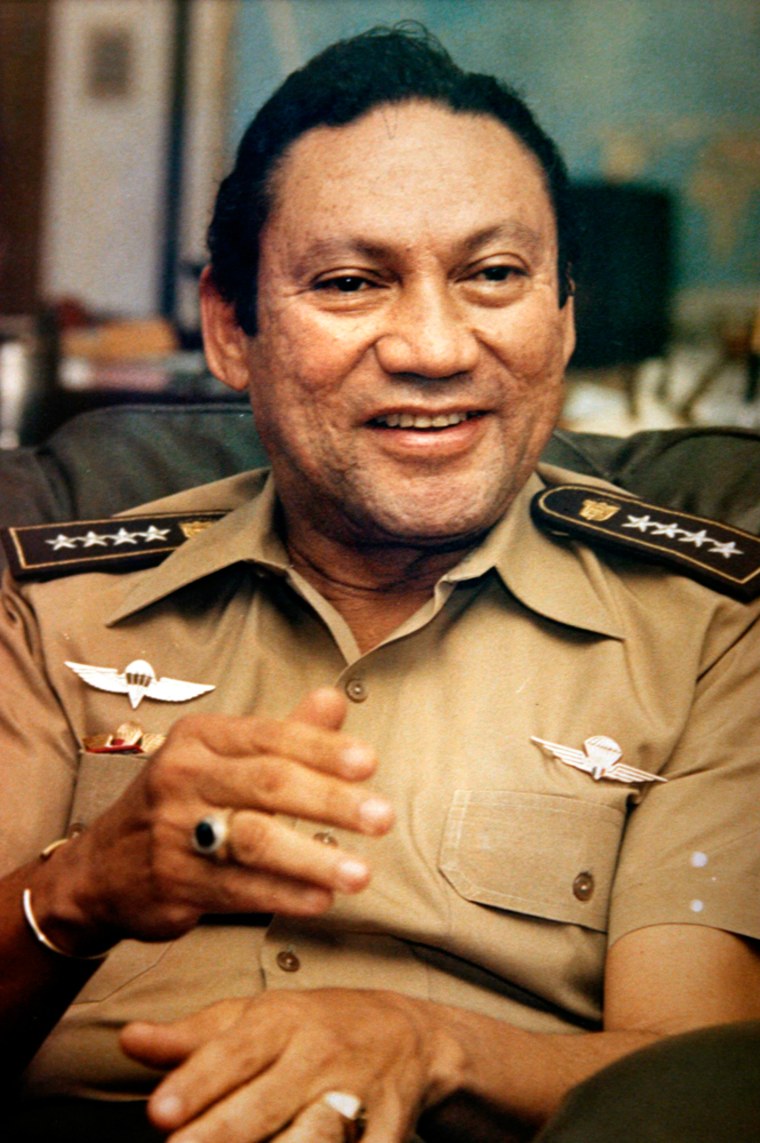A judge refused Friday to block the extradition of former Panamanian dictator Manuel Noriega to France, where he is accused of laundering millions of dollars in drug proceeds through French banks.
Senior U.S. District Judge William Hoeveler rejected arguments by Noriega’s lawyers that his status as a U.S. prisoner of war negated the French request under the Geneva Conventions and required his return home to Panama.
The decision, which could be appealed, means a hearing before another judge will go forward Tuesday on the extradition request.
Hoeveler, in a 12-page decision, said his designation of Noriega, 72, as a prisoner of war following his 1992 conviction was meant to ensure that he was treated as one while incarcerated.
“This court never meant for the proclamation of defendant as a POW to shield him from all future prosecutions for serious crimes he is alleged to have committed,” Hoeveler wrote. “It appears that the extradition proceedings should proceed uninterrupted.”
Noriega, 72, is to be released from a U.S. prison Sept. 9 after serving 15 years for drug trafficking and racketeering. He faces up to 10 more years in prison in France. His lawyer, Frank Rubino, said Friday that his client was “very disappointed, very displeased” by the ruling but had made no decisions about an appeal.
“He was hoping the judge would have done the right thing and sent him back to his home country,” Rubino said.
Rubino said Noriega would likely remain in custody after his prison sentence ends, while the extradition process goes forward. That process could take as long as a year, Rubin said, adding that he might appeal for United Nations intervention, using the POW issue as basis.
A French Justice Ministry spokesman, speaking on condition of anonymity according to agency rules, said it was too early to say what would happen if Noriega is again convicted — whether he would serve his term in France or be sent back to Panama.
The spokesman called it “classic procedure” and said there was nothing particularly special about Noriega’s case.
While in the U.S., Noriega was convicted in Panama of embezzlement, corruption and murdering political opponents and sentenced to 60 years. But he could wind up serving only a fraction of that time or even get house arrest under Panamanian law.
U.S. forces captured Noriega after a 1989 military invasion ordered by then-President George H.W. Bush in part because of the Panamanian’s links to Colombian drug traffickers. He was convicted of accepting bribes to allow shipments of U.S.-bound cocaine to pass through Panama.
Noriega also was an asset of the CIA for many years in Latin America, including acting as liaison to Cuban President Fidel Castro, according to court documents.
France wants Noriega to face charges of laundering more than $3 million in drug proceeds through five French banks. Noriega was convicted in absentia of those charges and sentenced to 10 years, but the French agreed to hold a new trial if Noriega is extradited from the U.S.
Rigoberto Gonzalez, Panama’s assistant attorney general, said at a news conference Friday that Noriega should be returned to Panama. The country has also filed an extradition request with the U.S., but Hoeveler said in his ruling that it was unclear whether Panama was “actively seeking his return.”
“Noriega has been convicted in Panama,” Gonzalez said. “He has to receive the same treatment as other Panamanians in the legal process. There is no other way.”
The U.S. Justice Department declined to comment on the ruling.
